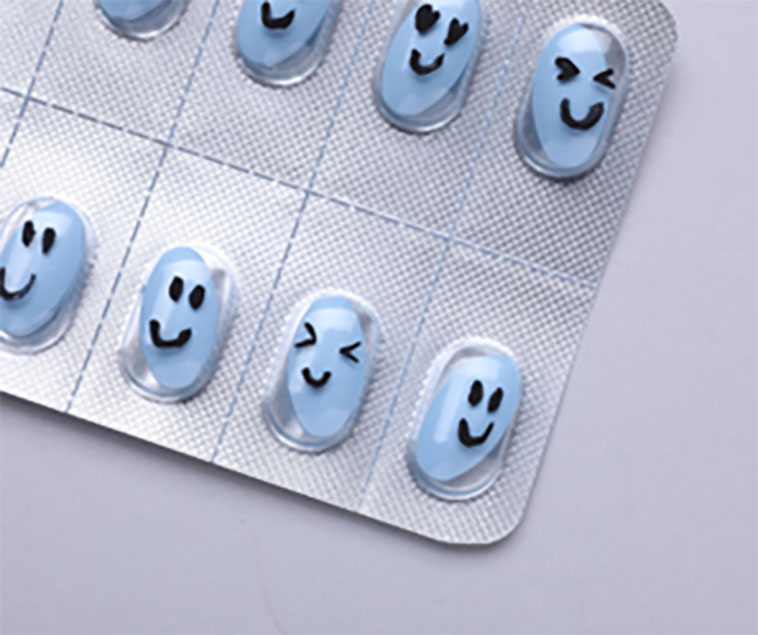Antidepressant addiction
What are antidepressants?
An antidepressant is a medication used to treat depression, anxiety, and other mental health disorders. Antidepressants work by altering levels of certain brain chemicals, such as serotonin and norepinephrine, which are believed to affect mood. Antidepressants can help to reduce symptoms of depression, such as feelings of sadness, hopelessness, and lack of energy, by improving mood.
Depression is a very serious issue and affects many people around the world. It is important to get help for this condition, and one of the most common treatments used is antidepressant medications. However, like any drug, there is the potential for addiction and abuse of antidepressants.
You can treat moderate to severe depression with antidepressants if you have been prescribed them. It functions by altering the serotonin chemical balance in the brain, which elevates mood and can increase feelings of optimism about life. In addition to treating anxiety, bulimia, phobias, and OCD, antidepressants can also be prescribed.
What is addiction?
Addiction is a condition in which an individual has become so dependent on a substance, activity, or behaviour that they can no longer control it. It is a chronic disorder that can be devastating to a person’s mental and physical health, relationships, and finances.
People who are addicted to antidepressants may also become isolated, depressed, and have difficulty functioning in their daily lives. It is important for anyone who is struggling with antidepressant addiction to seek professional help from a healthcare provider.

Take your first steps to recovery
Antidepressant addiction
When taken as prescribed, antidepressants can be a safe and effective way to manage depression. However, when taken in larger doses or without a prescription, they can be habit-forming and lead to physical dependence. This can lead to cravings for the drug and withdrawal symptoms when it is stopped.
In contrast to other prescribed medications, antidepressants can be very additive. Unlike other prescriptions that alter mood, these ones don’t give you the same “buzz” or “high.” Instead, they work gradually over time. However, antidepressants may be used to try to achieve this if you’re addicted to other substances.
Antidepressant misuse or abuse may be more likely in people with a history of substance abuse or addiction. In such cases, Steps Together’s medical team would closely monitor their client’s use of antidepressants and carefully evaluate their medical history to reduce the risk of abuse or addiction.
Even though you might not experience the same euphoria and cravings as people who use other substances, you could still become physically dependent on it.
The most widely used antidepressants are listed below in capsule or tablet form:
Sertraline
Paroxetine
Citalopram
Venlafaxine
Fluoxetine
Antidepressants can become addictive due to their impact on brain chemistry. These medications work by increasing levels of certain neurotransmitters, like serotonin, which can lead to dependence. Abruptly stopping antidepressants can cause withdrawal symptoms, reinforcing the need for continued use. Regular monitoring and gradual tapering can help mitigate the risk of addiction.
Antidepressant addiction and abuse signs
Antidepressant addiction and abuse signs can vary from person to person, but there are some common indicators to watch out for. It’s important to note that while antidepressants are not considered addictive, misuse or abuse of these medications can still occur.
Some behavioural signs of antidepressant abuse include:
Secretive behaviour, such as hiding medication or lying about its use
A need for higher doses of medication to achieve the same effect
Changes in social activities or isolation from friends and family may also be a warning sign
Financial difficulties may arise due to excessive spending on obtaining antidepressants or other substances
Relying on the drug to cope with life
Feeling guilty or ashamed about taking the medication
Cravings for the medication, or becomes unable to control their use
It’s essential to emphasize that if you or someone you know is struggling with antidepressant abuse or addiction, seeking help from a healthcare professional or an addiction treatment centre such as Steps Together is crucial. Addiction services can provide the necessary guidance, support, and resources to address the issue effectively.
Addiction is a serious issue and can have a detrimental effect on a person’s life. If you feel you are addicted to antidepressants, please contact us today on 0330 175 7031 for a free and confidential discussion.

Physical signs can include:
Bloodshot eyes
Diminished appearance
Changes in appetite or weight
Slurred speech
Agitation
Difficulty falling asleep
Shakiness
Sweating issues
Stomach problems
Feeling as though you've had an electric shock to the head
Mood swings, feelings of anxiousness and depression
Treating antidepressant addiction
It is important to seek professional medical help immediately if you suspect you or a loved one may be addicted to antidepressants. Our treatment programmes at Steps Together typically include a combination of clinical treatment, therapy, hospitality and accommodation. Medication can help to reduce cravings and withdrawal symptoms, while psychotherapy can provide valuable support and guidance.
For our residential and non-residential (outpatient) clients, we provide an eclectic blend of discrete, private, and confidential therapy programmes. This guarantees that we provide treatment and therapy programmes that are tailored to each individual, family, or group’s needs. These cover a wide range of addictions, disorders, and emotional and mental health concerns, and they include some of the best and most scientifically supported treatment modalities.
At Steps Together, we carefully blend clinical treatment, therapy, hospitality and accommodation to provide you with the perfect holistic environment, all under one roof, to help you enjoy your stay and make the most of your treatment programme and recovery.
Detox
Steps Together will assist you in overcoming your addiction as part of the Detox Programme. Our team of knowledgeable experts are here to help and support you at every stage of what may seem like a difficult process. Together, with a thorough plan to assist you in breaking your addiction, we will offer you a safe and welcoming environment to recovery.
For a free and confidential discussion with one of our friendly treatment advisors, please call 0330 175 7031 today.
Real stories from our previous clients

“I can’t imagine to this day what it was like for my parents, a mix of relief that I had finally agreed and disbelief that this is what it had come to.”
Ben, sober since January 2019

 Sertraline
Sertraline Secretive behaviour, such as hiding medication or lying about its use
Secretive behaviour, such as hiding medication or lying about its use


